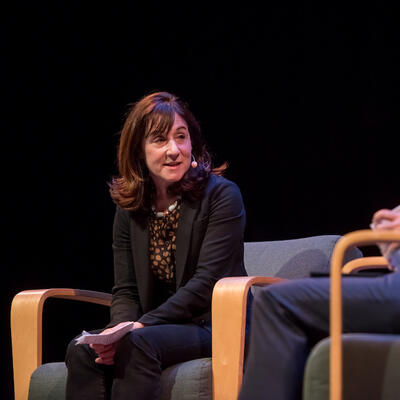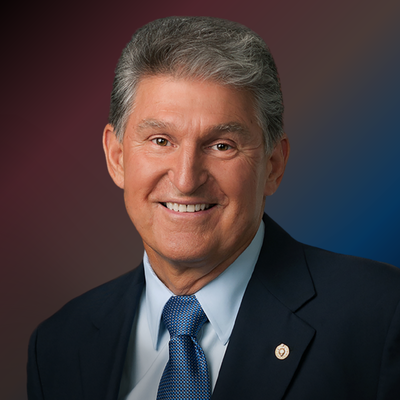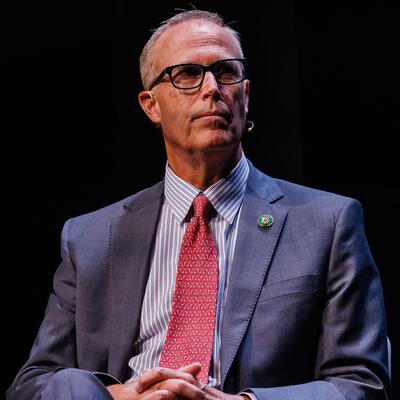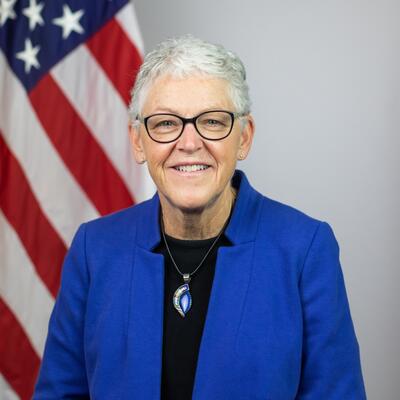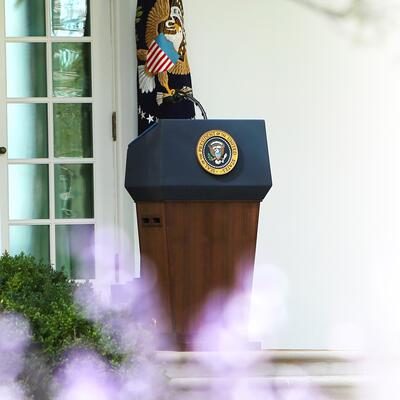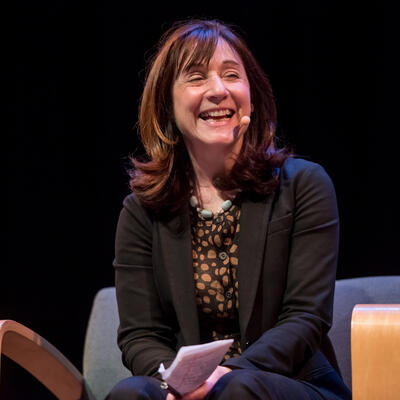
Dark Money and The US Chemical Safety Board
Guests
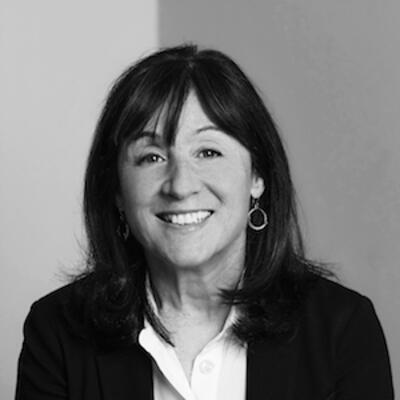
Jane Mayer
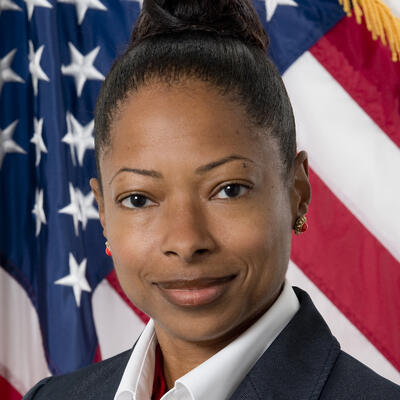
Vanessa Sutherland
Summary
In her book “Dark Money: the Hidden History Behind the Rise of the Radical Right,” New Yorker writer Jane Mayer exposes the powerful group of individuals who bankroll our political system. Mayer traces the billions of dollars spent by the Kochs, the Mercers, and other wealthy conservative activists to influence policies related to climate change, the economy and more. And as the Trump administration rolls back regulations, the head of the US Chemical Safety Board, Vanessa Sutherland, wonders how much these billionaires will succeed in weakening government oversight of their business.
Portions of this program were recorded at The Commonwealth Club in San Francisco, CA.
Full Transcript
Announcer: This is Climate One, changing the conversation about energy, economy and the environment.
Charles Koch: What I want is a system where there isn’t as much centralized power, where it’s dispersed to the people.
Announcer: That’s Charles Koch, the Chairman, CEO, and co-owner, with his brother David, of Koch Industries.
Jane Mayer: The best example of the influence money has in politics in this country is climate change.
Announcer: New Yorker writer Jane Mayer has traced the billions of dollars spent by the Kochs and others on the right to influence policies related to climate, the economy, and more. And as the Trump administration rolls back regulations, those billionaires are closer than ever to achieving their goals – a challenge that Vanessa Sutherland, chair of the US Chemical Safety Board, is acutely aware of.
Vanessa Sutherland: Bittersweet that we're celebrating 20 years of driving chemical safety change at a time when we potentially are on the chopping block.
Announcer: Behind Dark Money. Up next on Climate One.
Announcer: Why has the United States not taken more action to prevent disruption of the climate that supports our economy and lifestyle? Welcome to Climate One. I’m Devon Strolovitch. On today’s show, host Greg Dalton talks to New Yorker writer Jane Mayer about the forces that keep America from moving beyond the fossil fuel economy.
Jane Mayer is author of the 2016 best-seller, Dark Money: The Hidden History of the Billionaires Behind the Rise of the Radical Right. The book chronicles the political influence of well-known characters such as Charles and David Koch, John Olin, and Sheldon Adelson, as well as their operatives working behind the scenes. Jane also wrote the 2008 bestseller The Dark Side: The Inside Story of How the War on Terror Turned Into a War on American Ideals. Her recent reporting focuses on Robert Mercer, the reclusive hedge fund tycoon and climate skeptic behind the Trump presidency.
Here’s our conversation about dark money and politics in America.
Greg Dalton: So Jane, you start the book focusing on the Koch brothers and note that these libertarians inherited a fortune that was made in part by doing business with two of history's most notorious dictators, Joseph Stalin and Adolf Hitler. Connect those dots for us.
Jane Mayer: Well, the father in the family, Fred Koch, figured out a new way to refine oil in this country and he had a hard time selling it. The major oil companies were kind of blocking him and so he, in order to make money, took his discovery elsewhere. And the first thing he did was build up the Soviet Union's oil business for Stalin. And then I was trying to figure out what this family was about and get the family stories and somebody said to me, well then the father went over to Germany to do some work and it was sort of the late 1930s and I was thinking Germany in the late 1930s that’s a strange time and place to be working. So I started digging a little bit deeper and sure enough it turned out that he and a partner were building a refinery that had to be greenlighted by Hitler and that became very important to the Hitler war effort in World War II according to all kinds of historians that I interviewed about World War II and military-industrial history. So when you’re doing a book like this you really don't know what you’re gonna find, but not only had the father gotten this refinery built for Hitler, but he had been quite impressed with the German culture and brought back a nanny to raise the Koch brothers who turned out to be a Nazi. So I was thinking, you know, how often do you get a Nazi nanny for the two of the --
[Laughter]
billionaires who were dominating American politics. It was kind of like one of those days when you're sitting alone on a book and you think, Oh God, thank you. It’s just too interesting. I can't wait to tell people this story, so.
Greg Dalton: So they inherit this money and they actually are kind of, sort of, came sideways into their political activism, it was kind of for tax planning reasons you write. It wasn't like that they had political ambitions, like they had all this money, they had to find tax-efficient ways to use it, and they started giving it away to these organizations. So tell us how they got involved in politics.
Jane Mayer: So first, they were raised by their father Fred who became extremely anti-Communist after working with Stalin and seeing people he knew killed and sent off to Gulags. And so he came back to this country and helped found the John Birch Society and the boys were raised in that environment. And Charles and David were both members of the John Birch Society as young men. So they were kind of inculcated in their worldview, but they also had inherited hundreds of millions of dollars each. Each of these boys did, there were four in the family actually. And their father's estate planning hit upon a mechanism which was if you could put away some of the money and donate the interest to charity, you could avoid paying inheritance taxes. And so rather than just giving it to, you know, United Way or some existing charity, they created a family foundation and they gave the money to that and then started pouring that into conservative causes. And David Koch has talked about this. He became a philanthropist for tax reasons to avoid inheritance taxes. And they found that it gave them a lot of influence. To give away that kind of money every year. It makes you have a super loud voice in this country and they kind of liked it.
Greg Dalton: And you write about there's a person named Rob Stein who’s kind of mapped out the influence of the right in this concerted effort of think tanks, beachheads at universities. So sketch out that grand plan for us.
Jane Mayer: Right. So Rob Stein is someone who’s a liberal, who studied the Kochs to try to figure out what they were doing and he put together this massive chart that looks like something from A Beautiful Mind, that movie where, you know, you might be crazy looking at it. But in fact what he credits them with doing is founding something that he calls movement conservatism or movement philanthropy, basically taking philanthropy, weaponizing this idea of giving money away to good causes. But instead of them being things like funding hospitals or libraries, they were funding political projects and every year they’d pour more money into it and it became kind of political machine for them, a tax-deductible political machine.
Greg Dalton: The Koch brothers used to operate in this whole organization, used to operate in darkness. Largely thanks to you and your reporting there is a lot more light on it now. How has that changed the way it operates that there's more scrutiny?
Jane Mayer: Well, they've done a lot to try to improve their image and it's been interesting to watch -- particularly after 2012 when they put a ton of money into trying to elect Romney and defeat Obama and when that didn't work out they went back to the drawing board to try to figure out what went wrong. And what's interesting is they had a meeting with a number of the big donors that they work with whose money was being pooled and there was a tape that leaked of the discussion. And it's almost comic; at some point they say you know what we've discovered from they did all these focus groups and polling and stuff and they came back and they said, you know people think we’re greedy.
[Laughter]
Greg Dalton: How much did that cost?
Jane Mayer: And they don’t trust us. And so they actually embarked on a pretty large image renovation project that included and you can hear it when you listen to this tape, they talk about what they've discovered they need to do is form unlikely alliances with people who the public wouldn't expect them to work with and to do things that look like they're not self-interested. So it was pretty soon after that that they started talking about criminal justice reform which has become one of their big issues. And working with a number of black leaders putting money into the historically black colleges in the United Negro College fund. And they’ve been working on this and I mean you could be cynical, I’m probably somewhat cynical about this and think, you know, this is all in, you know, working towards cleaning up their image and trying to be more effective politically. But at least they are putting some money into some good causes while they’re, you know, serving their own cause.
Greg Dalton: We talked to a University of California Berkeley researcher about his relationship with Charles Koch. He told us don't believe everything you hear.
[Start Clip]
Richard Muller: My name is Richard Muller. I am a retired professor of physics at the University of California at Berkeley, cofounded along with my daughter Elizabeth something what we call Berkeley Earth to answer outstanding questions about climate change. This was about six years ago. And the current state of the belief was that 97% of all scientists agree that climate change was real and caused by humans. I mean I was a skeptic but the word skeptic has several meanings. And in science every scientist has a duty to be skeptical. I didn't know whether global warming was twice as bad as they were saying or half as bad or nonexistent. I just felt that the published papers did not meet the scientific standards that I had been trained were the minimal scientific standards for science. Mr. Koch came to a presentation of mine and I talked to him afterwards and he was interested. This was Charles, the Charles Koch Foundation. He had no, as near as I can tell, no preconceptions as to what our answer would be. He was very interested in finding out what our answer would be so he helped support us. The rule was that he wouldn’t hear our results before they were published. And in the end we concluded that global warming was real. I don't know whether I convinced him or not, but I do know that he is currently saying global warming is real and caused by humans. He is saying that he's not sure it's bad for humanity, that’s a separate issue that Berkeley Earth has not addressed. People make a caricaturization of people they don't know. They have no idea what Mr. Koch is really like. They have no idea what I’m like. The caricature is that I was a skeptic. Mr. Koch funded me because he wanted to prove it was wrong. I proved it was right and he deeply now regrets having done that. The truth is nowhere near that.
[End Clip]
Greg Dalton: That was researcher Richard Muller, a former climate change skeptic who now accepts the scientific consensus. Jane Mayer, your response to his story and how it reflects your reporting.
Jane Mayer: Well, he’s not in my book, but you know, I guess he's a physicist, not a climate scientist, right.
Greg Dalton: Correct.
Jane Mayer: And I would say he’s also not a historian from what I can tell because he says in this clip that Charles Koch came to him with an open mind in 2012. And by then, okay, by then between 2005 and 2008 alone the Koch family put $25 million into funding denial of climate change. They were described by Greenpeace as kingpins of denial in this country. Between 2003 and 2010, according to Robert Brulle, who's a professor at Drexel who’s followed the money on climate change, there was $500 million in this country put into denial of climate change. A lot of that came from the Kochs. And so he may be able to follow the stars or physics, but I don't think he follows the money, sorry.
Greg Dalton: And the related theme is this idea of beachheads that Richard Muller is, University of California Berkeley, there's others. So tell us about beachheads and how the funding goes into universities to sort of advance ideas and buy scholarship.
Jane Mayer: Yeah, I mean, you know, and this has been a longer project which is served to create kind of what Kellyanne Conway might call alternative facts. And so there are centers that the Kochs fund now in 350 universities and colleges in this country that are aimed at sort of promoting their ideology. You know, and I think, one other thing I want to say about this clip that’s interesting is that it is true that Charles Koch has now said in more recent time that he thinks well maybe there is climate change. And, you know, he would -- it's become I think almost impossible to deny though Scott Pruitt is still questioning it. But listen to the second thing that he’s saying, it's something that this man who I just wrote about in the New Yorker, who's worked with the Kochs and on political projects funding them too. Bob Mercer also says they are saying, okay maybe climate change is real, but maybe it's going to be great. And so they are sort of describing how it made result in more arable land, you know, greater crop productions and things like that. I mean, they have yet to say we need to do something about it and stop it. And that's what I will, you know, that day may come, it may become impossible not to face that but I haven't heard them get there yet.
Greg Dalton: In 2008, Barack Obama and John McCain basically had the same position on climate change. It’s something we can fix, we need to do it. In 2012, it did not play in the campaign at all. There was climate silence. 2016, there was polarization, Clinton and Trump being in very different places. How much of that is due to the funding from the people you've been writing about?
Jane Mayer: I would argue that the best example of the influence money has in politics in this country is climate change policy. Because it starts out with going back with, you know, from Nixon and the Bush presidencies, environmental policy was in the very beginning a bipartisan issue. And what's happened is, it's been captured by one party, this anti-climate change push comes from the Republican Party which is funded by the fossil fuel industry. And they have focused their efforts on that and they really moved the whole party in their direction with money. And you now have -- there was a chart that the New York Times ran very recently, I don’t know if people saw it, but if you take a look -- it’s a graph of the whole country and it shows what opinion on climate change is. And all across the country in almost every state, every county, people in this country believe climate change is real, it's a danger, it's caused by man-made activities and we should do something about it. I live in Washington DC where the Congress is and where Scott Pruitt is the EPA director, it's almost the only place that has exactly the opposite point of view. And there's really no other explanation for it except the money that's going into those people's pockets.
Announcer: We’re hearing about dark money and political influence from New Yorker writer Jane Mayer. This is Climate One. Coming up, Greg Dalton asks about the broader effects of billionaire activism on our political system.
Jane Mayer: it begins to destabilize the democracy if it gets too out of whack. You know it's hard to have one man one vote and everyone be politically equal when you have that kind of inequality going on.
Announcer: That’s up next, when Climate One continues.
Announcer: We continue now with Climate One. Greg Dalton is talking about the political influence of the Koch Brothers and other wealthy conservative activists with Jane Mayer, author of Dark Money: The Hidden History of the Billionaires Behind the Rise of the Radical Right.
Here’s Greg.
Greg Dalton: Let's talk a little bit about Bob Mercer. He was a Cruz supporter who switched to Trump. One of the people you interviewed in your recent New Yorker article said Trump would not be president were if not for Bob Mercer. So tell us about him and his daughter.
Jane Mayer: Sure. The person who said that is Nick Patterson who is someone who worked with Bob Mercer for many years at a hedge fund that Bob Mercer runs, Renaissance Technologies. Bob Mercer is a brilliant, brilliant computer scientist and mathematician who used to work at IBM where he and a team did kind of preliminary work for Google Translate. They figured out how you could use computers to take all the jumble of data that language is and translate one language into another. He was recruited by a hedge fund that thought well maybe you could use those same skills to take the jumble of data in the stock markets and the commodities markets and take a computer and write algorithms that would allow you to predict how the markets are going to move, give you the jump as traders on other traders. And so it's worked fantastically, Renaissance Technologies it’s based in Long Island, it’s a small and very secretive hedge fund that has been described by many financial publications as the most lucrative hedge fund in the world.
Greg Dalton: And his daughter, Rebecca Mercer was described as one person as the first lady of the alt-right.
Jane Mayer: That is what another conservative said that she wants to be. Bob Mercer’s got a daughter who is about I think she's 43 years old now. And what happened when this family got so rich they were, you know, kind of ordinary middle-class very brainy family, but the kids went to public school and they didn't live in a fancy house. But when the father got to this hedge fund and it started minting money he started earning what people think is about $135 million a year. And he had, it allowed him and the family to kind of indulge their wildest dreams. And among the dreams was really changing the direction of American politics and that's his daughter is the political activist in the family. And she's wanted to really change the kind of politics we have in the country. Again, they want to push it way off to the kind of libertarian far right.
Greg Dalton: What motivates – you've written about Robert Mercer, we haven't talked much about Richard Scaife, John Olin. These people have more money than anyone can imagine. What motivates them? Is it money, is it love, is it power?
Jane Mayer: One of the things that struck me when I was writing about them was -- and people have said about for instance about Trump that he can't be doing this for money because he's got enough money. But what I discovered with a lot of these people is for many of them there's never enough money. And it's not really about money for, you know, for getting the groceries or whatever. The money is a measure of their success and power and maybe their acclaim and who knows maybe it's their father's love whether or not they got enough in the inheritance. I mean there’s one woman whose story I love in the book, she's a minor figure, but her name is Susan Gore of the Gore-Tex family. And she was very rich and they were dividing up the inheritance in her family on the basis of how many kids each of the siblings in the family had. And she had one less child than the other siblings so she literally went to court to try to adopt her ex-husband.
[Laughter]
And it went through many rounds, eventually it was ruled not a legitimate strategy.
[Laughter]
Greg Dalton: I wonder how much she was gonna pay him to say, yeah, let me adopt you. What is the relationship of these people, some of them call Trump a clown. Many of them, as you write, Bob Mercer did not support Trump, some of them supported Mike Pence first. What’s the relationship with Trump?
Jane Mayer: So the Kochs by 2016 they had very high hopes of finally putting in someone in the White House who would be kind of their candidate. And they put together a group of major conservative donors that had pledged $889 million that they were going to spend in this last election cycle. And they were just waiting for the Republican nominee to emerge and as you remember, what were there 17 different candidates? And they pretty much could've lived with almost any of them except Trump. And the wrong one came out from their standpoint. And so they started pouring their money instead into congressional, gubernatorial, senate races and even lower level races all over the country instead. So they’ve had a complicated relationship with Trump. Many of the people that they have worked with and even some of their funders from their group, such as Betsy DeVos are now part of the Trump administration and there's more and more reporting that's coming out that shows how many people are, you know, in senior levels in the Trump administration who were previously working for the Kochs and there are a lot of them.
Greg Dalton: Is Pence their guy?
Jane Mayer: I’ve got to say Mike Pence in 2012 when Charles Koch was trying to figure out who he would really want to have run for president, Mike Pence was his number one choice. So Pence is someone that they love. And Marc Short who's working for Mike Pence in the White House, I can’t remember if he’s his Chief of Staff or some top job for Mike Pence, ran the Koch’s whole political money operation until, you know, a year and a half ago. So you've got people in there who are kind of Koch people. But Trump himself is not their kind of politician. For one thing, they feel he's not conservative enough. They feel that he, you know, he supports big expensive programs like Social Security and Medicare. And that's big government from their standpoint that they want to get rid of. So Mercer on the other hand, Rebekah Mercer and Bob Mercer became the funders who really saved Trump’s neck in the final round of the campaign. Trump was really in rocky shape in the very end after that tape came out, the Access Hollywood tape, his chief, the man that was running his campaign, Paul Manafort had to quit under, you know, with one headline after another tying him to Russian and Ukrainian oligarchs; it was a mess. And Cruz had failed, the Mercers were looking for a candidate and they really wanted to defeat Hillary Clinton. And Trump was the last man standing and they jumped in, said we’ll give you a couple million dollars but you’ve got to hire our people. And they had their own political operatives who'd been working with them. One was Steve Bannon and another was Kellyanne Conway, who was running their outside political PAC. And so their people and their money helped really sort of drag Trump over the finish line.
Greg Dalton: If you’re just joining us we’re talking with Jane Mayer, author of the bestseller book Dark Money: The Hidden History of the Billionaires Behind the Rise of the Radical Right. I'm Greg Dalton. At any point did you get people to acknowledge the irony that these people who want to shrink government have made fortunes from government contracts?
Jane Mayer: I think it's a wonderful question. And it’s not just government contracts. I mean one of the things that made Bob Mercer such a success again, as I mentioned, was this work he did at IBM. And IBM didn't really fund it properly and they needed more money and it wasn't going to work unless they could find outside funding and where did they go? The federal government. They went to the Defense Department and DARPA funded that work that they did. And it was that success that then helped him, you know, be seen as someone to hire by Renaissance Technologies. So he owes the federal government lots. But for some reason he according to the people I interviewed who work with them, once said he wants to shrink the federal government down to the size of a pinhead. And he now says he doesn't think anybody should get government aid, that it coddles people and that people need to make it on their own.
Greg Dalton: Looking ahead, what have these people that you've written about, what have they done to pass it on to the next generation? We’ve talked about Rebekah Mercer don't know about the Kochs or others. What plans are there for their causes to outlive these individuals?
Jane Mayer: Well I mean, as far as passing it on to the next generation. One of the things that's literally alive and in front of Congress that both the Kochs and the Mercers have pushed for is to get rid of estate taxes. You can then pass it onto the next generation without paying anything. And I really think in this country we don't want to become an aristocracy where there's just one class that owns so much of the goods in this country and the wealth in this country because it begins to destabilize the democracy if it gets too out of whack. You know it's hard to have one man one vote and everyone be politically equal when you have that kind of inequality going on and so I worry about that.
Greg Dalton: In 2011, the feuding Koch brothers had a cease-fire; there had been a civil war. Tell us about that that settlement and then you end with a line from Bill Koch talking about his brothers.
Jane Mayer: Well, yeah, this is not The Brady Bunch, the Koch family. They for decades, the brothers litigated against each other. They’re four brothers, people think of two. The two we know was one team and there was another team of brothers on the other side and they were fighting over the family money and control of Koch industries. And it got so nasty that when there was a family funeral – their mother died – they passed by each other and wouldn't speak to each other. And anyway, eventually, you know, they’re constantly in the courts and eventually they had what they called the global settlement. And among the terms of the global settlement are that neither, no brother is allowed to disparage another brother and that each time if they do, there will be a fine and it's an escalating fine and it's so much money that they don't disparage each other.
[Laughter]
Greg Dalton: A little more than fining your teenagers when they swear a little bit like $.50 it’s more than that I think.
Jane Mayer: It’s a bit more than that.
Greg Dalton: How often do average people take on the Koch Empire? Is it something like they just -- is it a cost of doing business where they occasionally settle a suit like this and they’re making so many profits that just like sexual harassment suits the Fox News sort of thing, it’s part of, you know, you pay a little bit as you go along.
Jane Mayer: They’ve had an epic legal history, I mean, they’ve had some enormous cases and some of the biggest environmental cases in the country are against Koch Industries.
And I mean not surprisingly because the EPA classifies them as the largest producers of toxic waste in the country and one of the largest air polluters, climate polluters and water polluters. But there are small people who stood up to this and many of them were kind of my heroes as I was writing the book. And again, there are often people who are, you know, not particularly powerful. There's one, there is the story of a man in the book named Phil Debose who worked for Koch Industries for many years and he went along with a lawsuit that accused Koch Industries of cheating and lying and covering up their pollution. And it went on and on and on and eventually in a civil case version of the original suit, he and his side won. And so I said to him, he lives down in Louisiana and when I interviewed him there were like dogs barking in the background and I said to him, how did you do that against this, this is the second largest private company in America. And he said, well we had something that was stronger than the Koch brothers. And I said, what was that? And he said, the truth. So, you know, you can't make up lines like this. It's pretty incredible.
Greg Dalton: We’re talking with the New Yorker writer Jane Mayer at the Commonwealth Club, I’m Greg Dalton. Doreen Carlson's husband Donald worked for 23 years at Koch refinery in the Minneapolis area until he got sick. Here's the story of Doreen Carlson.
[Start Clip]
Doreen Carlson: I’m Doreen Carlson. I live in Inver Grove Heights, Minnesota. My husband is Donald Carlson who passed away 20 years ago. He worked for Koch Refinery and had become exposed to benzene which caused a pre-leukemic disease. He did have to clean tanks. When he first started working there, there wasn’t any uniform, they wore their regular clothes. Yeah, it smelt like gas, the boots would be soaked too, the clothes were pretty dirty. I knew it didn’t smell great but I hadn’t heard much about the toxicity of, you know, the products naturally until he got sick. In August 1995, they said he couldn’t work anymore and he was in the hospital in January of 1997, and he passed away that February 28th. So I got a letter from the lawyer within a month of my husband’s death, Koch wanted to talk to me and offered me money. They didn’t do anything wrong and I would have to sign a confidentiality agreement. I started doing my own research and realized the thing had been going down since 1990 and they waited till it was 9. I think they weren’t supposed to tell until it was like 14. So I fought with him as long as I could and I had another reason for not settling. I thought maybe it would go on the record somewhere that he died of this so that maybe someone else wouldn’t have to fight so hard. Within a few minutes of going in the courtroom, Koch then said “give her the work comp” what they should’ve given my husband before he died. It was a very rude awakening for people who live in a world where you follow the rules and then you find out that people who are the most successful and important they don't have to follow the rule. It’s kind of a hard thing to swallow.
[End Clip]
Greg Dalton: That was Doreen Carlson whose husband died of cancer after working at a Koch refinery for 23 years being exposed to toxic levels of benzene. She did not settle. And Jane Mayer, how many Doreen Carlsons, how many Donald Carlsons are there out there. Do we know?
Jane Mayer: Well, I mean, you know, it's impossible to say with specificity how many they are. But this fight is the fight that is it, the core of politics today in many ways and the core of the Kochs’ fight. What happened was beginning and around the 1970s with the environmental movement and with Ralph Nader there was a push in this country to try to make workplaces safer. The discovery that a lot of the things that, kind of, chemicals were toxic and that we needed to try to have regulations that would control human exposure to these things. And the problem for Koch Industries was that was expensive and complying with those laws cost them. And Doreen Carlson's husband was, you know, a casualty of that right there in the middle of that fight. He worked for Koch Industries for 23 years as she says, he was a very dedicated worker, he was known as Bull because he was a bull of a man who would do any job. And when he got sick they kind of hid from him what he was exposed to and what this was all about. And then when he died, Koch Industries refused to give this widow Workmen's Compensation for it. She says, they were gonna give her a pittance, a little payment and shut her up, make her sign a nondisclosure agreement. There were many people who worked for Koch Industries who have had to sign nondisclosure agreements and one of the things that was hard about writing the book that I did was you can't interview an awful lot of people because legally they are not allowed to talk to you and they're very scared they're going to be sued somehow. But anyway, she is a really interesting kind of American character, someone who just held her ground and she said I won't take your money, I'm going to tell my story and you’re gonna pay me Workmen's Compensation because you killed my husband by exposing him to these chemicals. And they went round after round, and finally she was taking them to court and they were actually literally outside the courtroom in the courthouse building when the officials from Koch Industries said, all right give her the money, give her the Workmen's Comp. And it was, you know, I thought it was quite moving when I interviewed her I was kind of amazed and, you know, she's not rich, not incredibly well-educated, but she did it because she wanted people to understand what this is really about. And she just said to me when I interviewed her, “They are fighting regulations and they are saying that regulations are bad for people in this country. Regulations are what saves the lives of people like my husband.”
Announcer: Greg Dalton has been talking with Jane Mayer, staff writer at the New Yorker magazine, and author of Dark Money: The Hidden History of the Billionaires Behind the Rise of the Radical Right. Coming up, Greg sits down with the head of the US Chemical Safety Board to find out how one agency charged with protecting Americans’ lives is faring under the current administration and a changing climate.
Vanessa Sutherland: Time will tell whether the regulatory oversight and enforcement will continue, but it's hard for our agency to really know what the direction will be for our federal peers who have that regulatory oversight role.
Announcer: That’s up next, when Climate One continues.
Announcer: We continue now with Climate One. Since 1998, the US Chemical Safety Board has been carrying out independent investigations of industrial chemical accidents. The current chairperson, Vanessa Sutherland, was nominated by President Obama in March of 2015 and confirmed by the Senate later that year. She spoke to Greg Dalton about how her agency works to protect people and the environment from the risks associated with the chemical industry.
Greg Dalton: So for people who don't know, what does the Chemical Safety Board do, briefly.
Vanessa Sutherland: Well, we are very unique in the federal government because we are independent non-regulatory agency. No fines, no penalties, no regulatory enforcement. We have the sole mission of driving chemical safety change through independent investigations. We find the root causes of catastrophic events such as a Deepwater, the Macondo event or BP Texas City, Chevron refinery releases. And we share very broadly, the root causes and underlying events that led to those events so that all who are able to drive chemical safety change, such that the regulated community or regulators can jointly prevent any future incidents from happening.
Greg Dalton: And one of those happened recently, oil rig fire in Quinton, Oklahoma, five workers died, it’s an ongoing investigation. What can you tell us about that?
Vanessa Sutherland: Well, it is an open and ongoing investigation. But what I can tell you so far Greg is that it is an incident that we are concerned about given our history investigating the deepwater offshore drilling rig explosion. This one of course, is onshore. But if we can learn broad lessons about the technical events and share any similarities from deepwater with this incident we’re hoping that we can drive chemical change in the onshore world as well. It’s just horrible that five workers died. And right now we're still looking at interesting causes and scoping the investigation out. And we still have a lot of work to do, but we're hoping that with interviews and evidence collection we’ll be able to share very broadly what happened on that rig at Red Mountain that ultimately led to five people dying.
Greg Dalton: Deepwater Horizon disaster 10 years ago there were some bipartisan commission put in place, industry participation some changes were made. Are those changes those regulatory and safety changes being loosened now?
Vanessa Sutherland: It's hard to tell because that investigation as you know from the 2010 incident. Our investigation led to many recommendations to regulators as well as voluntary consensus standard bodies who provide guidance and best practices to the industry. It's difficult to know if they’re being loosened because some of those recommendations remain open even after the issuance of our final report four volume set in April of 2016. So eight years after that catastrophic event where 11 people died and 17 people were injured. We were still working through our recommendations to recipients such as rulemaking and regulatory enhancements. But Department of Interior has made some very important changes in the STEM program that they have that's a regulatory enhancement. And many both at the corporate level for BP as well as voluntary consensus bodies have made changes to date. So I think it will be, you know, time will tell whether the regulatory oversight and enforcement will continue, but it's hard for our agency to really know what the direction will be for our federal peers who have that regulatory oversight role.
Greg Dalton: Because there was a case there where there was kind of conflict in the mission among the organizations where they generate revenue, but also you’re the cop and the revenue collector at the same time. And there are some sex and drugs and rock 'n roll going on among the regulators and the regulated so you don’t know how clean that's become.
Vanessa Sutherland: No and, you know, from the Chemical Safety Board's perspective, we want to hold everyone accountable. Our mission is very unique in that regard that we want the regulators to do a great job hiring staff doing inspections enforcing the regulations and enhancing their regulations when they need to. But we also want industry who can move a little bit more nimbly and quickly than regulators can to look at the lessons that we've provided to protect people and the environment and act on those. Consensus bodies can change their standards every 2 to 5 years and we want to make sure that that dance between the regulated and the regulators continues to drive safety.
Greg Dalton: The Chemical Safety Board says that it’s an efficient arm of government about $11 million budget, 40 staff members and yet President Trump’s current budget for 2018 has it on the chopping block. What are the prospects of this going away and they say that other agencies could do the job?
Vanessa Sutherland: The CSB was created to be unique, and it is the only agency in the federal government conducting these types of independent broad root cause investigations. Our mission which is to drive chemical safety change through those investigations was born out of the Clean Air Act because there was no other agency looking at hazardous releases into the air and the impact to people and workers and the environment in which these facilities operate. So we certainly hope that the mission will not be eliminated for 40 people and $11 million, Greg. We’ve deployed to over 130 incidents we have 806 recommendations to a variety of recipients who we know can drive chemical safety change and protect people and the environment. And so when you think that only 20 of them are doing the investigations and we're covering 50 states. It's pretty remarkable what our agency has been able to accomplish in its 20-year anniversary. And that's actually this year, 2018 is our 20-year anniversary. So, bittersweet that we're celebrating 20 years of driving chemical safety change at a time when we potentially are, you know, on the chopping block for elimination.
Greg Dalton: Yeah, it seems similar to the National Highway Transportation people who come in after car wrecks and plane crashes they kind of figure out what happened.
Vanessa Sutherland: And the National Transportation Safety Board was the agency upon which we were modeled. So the goal was to have an independent arm, such as the Chemical Safety Board, look at fix facilities and help them improve process safety, management oversight, risk management programs. And to generally be made aware of lessons that if we didn't publish our investigative work they may never hear about or never understand the root causes and systemic problems that led to a catastrophe. So our goal is to get those lessons not just the industry but to the communities, to emergency responders, to planners to everyone who can help prevent an incident or God forbid, if one happens help mitigate the consequences if a fire or explosion occurs.
Greg Dalton: And scientists say that because of climate change we’re putting more energy in the atmosphere that's driving more severe and more frequent storms. Houston was hit by Harvey they had three 500-year floods in three years. There was a chemical facility there that makes organic peroxides for Styrofoam plates. Tell us what happened there during Harvey because it seemed like it was quite a story of they were moving things around in trucks and forklifts and then by hand. It's quite a story.
Vanessa Sutherland: Yeah. Our agency deployed to, the company is called Arkema and they’re in Crosby, Texas. And we were drawn to that story because while we have investigated emergency response and planning efforts following natural disasters. What was unique and what we hope to learn from Arkema is how facilities like those that are in the Gulf Coast or in the pathway of any type of extreme weather can plan better. And how our, you know, I guess our investigative findings might drive better preparedness. So what happened there was in August 2017 last year, they had prepared for Hurricane Harvey by taking these organic peroxides and putting them into trailers. The goal was to keep them cool so that they wouldn't reach their self accelerating decomposition temperature. That's just a fancy way of saying if you don't keep them cool enough they catch fire. But when the trailers that were using electricity to cool these organic peroxides failed because the floodwaters kept rising and shorted them out there was nothing left to do with the organic peroxides except wait for them to reach their self accelerating decom temperature. So we're there to understand what lesson and insight might we bring to facilities that are in a floodplain built in one. Facilities that were built and the geography around them changed over 50 years which appears to be what might've happened with Arkema and the flood zones are altered. What happens when you're building in communities that begin to grow and start to place residential properties near facilities? These are all really important questions and not just Hurricane Harvey, but Irma and Maria. I don’t have to tell most people the count so far is close to $300 billion in damage. And that's not the long term remediation and repair that we see in these kinds of communities when a catastrophe occurs. So it's really important to us that if we can shed any light on how to better prepare for and to conduct emergency planning activities and response during a hurricane, prior to a hurricane and after a hurricane to minimize the amount of chemicals that are released into these communities, then we will have been doing our mission. And that really for me is very important and I know our team is very excited about trying to get our Arkema investigation finished before the 2018 hurricane season starts.
Greg Dalton: $300 billion that's real money. How was the climate change and increasing intensity and damages, how’s that affecting your job?
Vanessa Sutherland: Well, our job is irrespective of the contributing causes. If there is a release of a hazardous substance into the air and it causes death, significant personal injury or property damage. We will go investigate those types of instances. So with more extreme weather incidents occurring certainly that might mean the CSB deploying to more of these events like Arkema.
Greg Dalton: The storms are bigger than people planned on. Houston didn't plan on the rain they got because they never see it because they didn’t think it could happen and wham.
Vanessa Sutherland: And process safety experts the CSB, I in particular have been attending conferences, addressing this very issue. Tsunamis, we've had international speakers come talk to us about what they’re seeing around the world so that the scientist and the engineers and organizations like mine can try to share those lessons. What do we see in this extreme weather and if our predictive analysis is slightly off and we are actually going to see more of these storms and more category five, which is what made 2018 unique, then we have to really figure out what our emergency drilling, training, preparedness, alarm systems et cetera are going to be when these storms are approaching chemical facilities that might release toxic chemicals into the environment.
Greg Dalton: Seems like backup power at chemical plants, backup power at retirement homes and assisted living homes, backup power in a lot of places. In terms of support for your organization I read, Bloomberg reported a executive from Tesoro saying that it was worth preserving the Chemical Safety Board. So where is the industry in terms of wanting to get you off their back or saying, hey, a good cop on the beat is a good thing?
Vanessa Sutherland: I've been at the CSB for 2 1/2 years. And I would say that without fail the stakeholders with whom I've met industry included and the trade associations of which they are part have been very supportive of the fact that we are, the CSB is meant to do objective, technically rigorous independent investigations that go well beyond whether someone violated a regulation or failed to be in compliance with a subset of the law. Because we want to tell them more broadly in addition to what may have failed from a regulatory perspective. All of the other contributing factors, human factors, technology factors, standards and best practices factors that led to an environment where catastrophe could happen. So I think industry appreciates that. I think academia appreciates that and everywhere that I go, I received very positive feedback. Not just about the way our investigators conduct the work, but the resulting product, the videos, the reports. Because they can take an incident at another facility and before anyone dies at of chemical facility of any kind. They can take the lessons that we've shared from someone else and implement them. And I have heard them say we are very open to that, because we want to be able to get fuel and petrochemicals to the consumers but we want to keep our workers and our neighbor safe. Many of the people who work in these facilities live fairly close. And so we haven't heard from industry and to be blunt we haven't heard from the regulators that they want our mission to go away. It’s quite the contrary we've heard that you're the only one CSB doing this kind of independent investigation. You and the NTSB are able to objectively share lessons but also sometimes see things that the industry may not see. So it's helpful for us to fill in that blind spot or areas where they think they're rolling out a safety program efficiently and we can take a more rigorous look and say, in this particular instance actually, you've missed things. And do that in a way that's not blaming or shaming, but really helping them get better. And I think they've appreciated that.
Greg Dalton: So then who’s eager to get rid of this $11 million technical agency inside the federal government?
Vanessa Sutherland: Well, I can say based on the feedback that I've received those who benefit from our reports broadly even outside of the country love our work. We are the only safety agency that's been proposed for elimination last year and this year in the administration's budget. And I think we would say that while we understand the statements in the budget regarding safety and security of America, as a safety agency we think we fit squarely into that. Good safety is good business. And good safety drives good economic prowess. So I think it's, you know, from my perspective, I think it's really critical that we have an agency like the CSB that helps prevent catastrophes that ultimately harm communities, cost a lot of money and even shut down the companies that were affected. And that's also not good for the economy. So we think we’re very much in line with the administration’s desire to drive economic prosperity.
Announcer: Greg Dalton has been talking to Vanessa Sutherland, chairperson of the US Chemical Safety Board, the independent federal agency charged with investigating industrial chemical accidents.
To hear all our Climate One conversations, subscribe to our podcast at our website: climateone.org, where you’ll also find photos, video clips and more. If you like the program, please let us know by writing a review on iTunes, or wherever you get your podcasts. And join us next time for another conversation about energy, economy, and the environment.
Greg Dalton: Climate One is a special project of The Commonwealth Club of California. Kelli Pennington directs our audience engagement. Carlos Manuel and Tyler Reed are the producers. The audio engineer is Mark Kirschner. Anny Celsi and Devon Strolovitch edit the show The Commonwealth Club CEO is Dr. Gloria Duffy.
Climate One is presented in association with KQED Public Radio.
